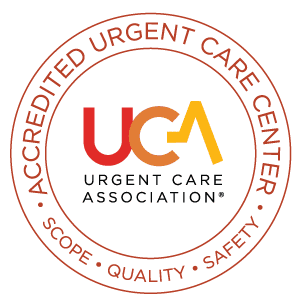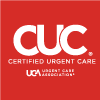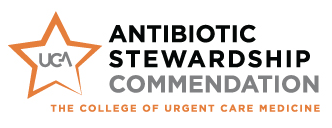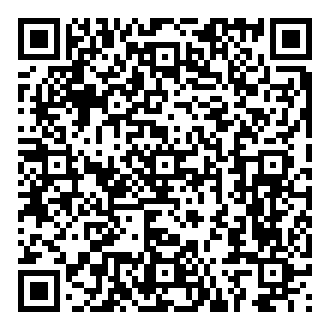STATEMENT OF INTENT: To provide patient access during and after regular business hours, and to effectively communicate with patients.
1) Communicating to all patients with a PCP for Continuity of Care
One of the core principles of Family Medicine and Urgent Care Medicine is the continuity of care for each and every patient. It is the focus of all clinicians of UrgiMed Urgent Care to treat every patient based on his or her specific needs, as well as to coordinate all aspects of each patient’s care.
The staff understands the special bond that develops between a patient and his or her primary care physician and, as such, makes every effort to communicate patient care with their personal clinician. If a patient is not able to be seen by his/her PCP, the treating clinician documents in the Chief Complaint section of the progress notes the reason why his/her PCP is not seeing the patient.
2) Coordinating Visits with Multiple Clinicians and/or Diagnostic Tests During One Trip
As urgent care clinicians, the clinicians of UrgiMed Urgent Care oversee the care of each and every one of their patients. The current economic climate of the medical field does not make it possible to have specialists available at the same site as our clinicians. However, all of our clinicians refer patients to specialists when needed and rely on consult letters or personal calls from the specialists to keep them apprised of an individual’s medical issue.
There are a limited number of diagnostic tests that may be performed in an Urgent Care setting. Based on the nature of the patient’s visit, UrgiMed Urgent Care staff/clinicians do perform throat cultures, COVID-19 tests, flu tests, pregnancy tests, EKG’s, urinalysis, pulmonary function testing, breath alcohol testing, PAP smears, medication administration, IV therapy, suturing, I&Ds, bloodwork testing, and more. All routine vaccinations are also administered in-office. Patients are referred to specialists or other facilities when diagnostic tests outside the realm of the primary care office are warranted.
3) Determining Through Triage How Soon a Patient Needs to be Seen
Because of the schedules, UrgiMed Urgent Care contains a good number of same day appointments. Most patients who call seeking an appointment are able to be scheduled by the front desk staff. However, UrgiMed Urgent Care also has in place a particular method of triage that is unique to the office, depending upon the number of clinicians working on a given day.
Our front desk medical receptionists take phone calls from patients requesting an appointment. They determine how quickly a patient needs to be seen and work very closely with the clinical staff in the office to make certain that the patient is seen on an as-needed basis by his or her personal clinician or, when not possible, by another clinician in the practice. Should there be extenuating circumstances, the M.A. also works closely with the clinicians and will consult with them when communicating with a patient.
Same day appointments are scheduled based on the triage protocols established by the office. Urgent and emergent appointments are given priority. Urgent appointments are those determined by the clinician and the goal is for the patient to be seen for medical evaluation within 4 hours. True emergencies are referred to the local E.R. If there is an in-office emergency, the clinician will see the patient for medical evaluation emergently.
4) Scheduling Same Day Appointments Based on Practice’s Triage of Patients’ Conditions
As mentioned above, every effort is made to keep an adequate number of same day appointments available for every clinician. Likewise, the office has its unique procedure for dealing with triage calls and ensuring that each patient is seen on a timely basis for his or her medical issue.
5) Scheduling Same Day Appointments Based on Patient’s/Family’s Request
The staff realize that patients often find it difficult to incorporate a visit to their physician, be it a routine physical or a more urgent matter. Therefore, they take great care to be sensitive to the time restrictions of the patients and to do their best in offering patients several options for scheduling their appointments.
Likewise, the physicians also realize the difficulty many patients face in seeking the care they need while simultaneously meeting the demands of their place of employment or their families. Responding to the needs of patients, our office offers extended hours. UrgiMed Urgent Care offers morning appointments as early as 7:00 am Monday through Friday. The office also schedules patients until 6:30 pm Monday through Friday. UrgiMed Urgent Care also offers Saturday and Sunday appointments 9am-4:30pm. Patients are therefore given the opportunity to come in for a same day appointment during the time frame that best suits their schedule for the day.
6) Providing Telephone Advice on Clinical Issues During Office Hours by Cinicians within a Specified Time
Great care is placed on providing telephone advice to patients on a timely basis. Clinician schedules, for example, are structured to allow callback time at different intervals during the day. This allows the clinicians to touch base with patients who have immediate concerns, as opposed to having to wait for a call back until all patients are seen.
Clinicians also spend a great deal of time after seeing patients each day to return patients’ calls and address their medical questions and concerns.
Clinical staff have the goal of returning non-urgent calls to patients for clinical advice and other requests within 8 hours of the call. No medical advice will be given over the phone to any patient who has never been seen at UrgiMed Urgent Care or has a different complaint than the previous visit.
7) Providing Urgent Phone Response within a Specific Time, with Clinician Support Available 7 Days a Week during office working hours
Urgent telephone calls are handled on an immediate basis. During office hours urgent calls are returned by a clinician within 60 minutes. The office has in place its system for maintaining coverage 7 days a week. Should a clinician not return a call within 30 minutes, he or she is automatically contacted again. Patients can expect a response to their urgent phone calls at all times that the office is open.
8) Providing Secure E-Mail Consultations with Physician or Other Clinician on Clinical Issues, Answering within a Specified Time
Our electronic medical record system has the capability of a patient portal, offering clinicians and patients secure e-mail communication that is saved in a patient’s record, as well as providing patients the opportunity to access certain pieces of their medical records. It is the eventual goal of the office to utilize the patient portal and all it has to offer for all patients.
9) Providing an Interactive Practice Web Site
Our office does have a Website, which can be accessed by going to www.urgentcare-randolph.com. The Website details of our office procedures, amenities, patient rights and responsibilities, antibiotic stewardship, on-site laboratory testing, patient services, vaccinations, and more. Contact information is available for the office.
10) Making Language Services Available for Patients with Limited English Proficiency
The great majority of patients serviced by our office speak English, and thus the need for language services is not applicable in almost all cases. In addition, there are several clinicians and staff members who do speak Spanish fluently. Patients who may have trouble communicating in English most often bring a family member to help them communicate with their clinician. We have also identified phone applications that can help with translation services.
The language/communication preference of established patients is noted in the patient record. The office manager and clinical staff ensure that the appropriate communication services are provided for each patient and that this is documented in the patient record.
11) Identify Health Insurance Resources for Patients/Families without Insurance
The majority of patients seen by our clinicians do have health insurance. Those who do not and are unable to afford medical care are directed to contact the resources made available to them listed on our website or at the front desk. If the patient is present, documentation of the referral is made in the patient chart at that time. Per orders only from the COO, Medical Director, or Director of Operations, a clinician may occasionally be granted permission to see an uninsured patient for a minimal or zero fee, pending extenuating circumstances for the patient.
Pediatric patients without healthcare who are in need of immunizations are directed to their local Health Department or to the Zufall clinic, if no prior contract exists.
Records are maintained in the charts of patients with no insurance documenting the resources for medical care of which they were made aware.
12) Patient Feedback
Patients are encouraged to provide feedback in any way they feel comfortable. They are encouraged to discuss issues with staff members, communicate via our website, write a letter, or fill out a feedback review via Google using our QR code which is posted throughout the office and on our website. It may be completed and submitted. All feedback is monitored by the Director of Operations and COO and distributed to the clinicians and staff for appropriate action at our regular office meetings. When time permits, if patient has a signed release form, we may send a text to the patient’s cell phone with the Google review link.
The effective date of this Policy Manual is January 1, 2021. It has been reviewed and revised January 1, 2022 and January 1, 2023.
Staff members are notified of revisions to this Manual.
This information is communicated to patients by referral to Website. A notice informing patients that this information is available is also posted in the waiting room of the office.



